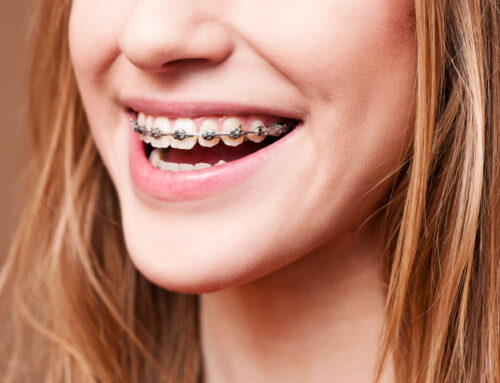Does this sound familiar? You’re often so tired that you can’t get through the day without dreaming of a mid-afternoon nap. You have ongoing respiratory illness and you’re fed up to find that yet again you wake up with a dry mouth. But perhaps the worst of it is that you’re tired of being woken up by your partner whacking you to stop snoring! So what do you do? You go to your phone and you start browsing…orthodontic treatment? Yep, you got that right!
Never before had it occurred to you that you have sleep apnea, let alone that it can be alleviated by orthodontic treatment. Read on to see whether orthodontic treatment could be the key to your sleep issues.
What Exactly is Sleep Apnea?
Sleep apnea is a condition in which a sleeping person wakes intermittently throughout the night due to a blocked airway. When you hear about sleep apnea you may be tempted to envision your tongue falling down the back of your throat. (Is that even possible?) But sleep apnea can be caused by so much more than that! Things like poor tooth alignment, jaw misalignment and even issues with the arch of your palate can contribute to sleep apnea.
You can try as you might to sleep on your side, sleep on your back with no pillow behind your head, or even sleep sitting in a relaxed position, but if the root of your sleep apnea is orthodontic, only an orthodontist can ultimately get to the root issue of your condition and provide the treatment necessary to feel (and sleep!) better.
How Orthodontic Treatment Can Help
It is not uncommon to hear the term “sleep apnea” and think you are automatically destined for a lifetime on a CPAP machine. While this isn’t entirely incorrect, it’s not the end of the story. In some cases an orthodontic treatment will do most of the work in conjunction with a CPAP machine while the individual is undergoing orthodontic treatment.
Depending on the exact orthodontic issue that’s causing a person’s obstructive sleep apnea, there are three different types of dental appliances for sleep apnea that an orthodontist might recommend.
First, if the issue lies with your teeth blocking your airway, the solution could be as simple as utilizing braces and aligners to correct the out of place teeth. This process takes time and, while no one wants to feel like they are in 8th grade again, the end result is worth the braces wearing if you walk away with better sleep on your horizon. Aligners are a popular choice for those in the working world or those who simply don’t want to have the metallic look of braces, as they are easier to disguise.

Also, in the case of a child suffering from sleep apnea, a palate expander may be used to widen the roof of a child’s mouth. This is only effective in children who are still growing, as the expander causes the palate to do just that – expand. Having a wider space in the jaw enables teeth to come in naturally and unobstructed. This is an effective solution for younger kids who suffer from sleep apnea.
Finally, if you are too mature for a palate expander, and braces aren’t the best option for you, your orthodontist may recommend a mandibular advancement device. This is a made-for-you device that alters the shape of your mouth while you sleep. As a result of wearing this device, your lower jaw will shift slightly forward and downward. This has the effect of widening the airway, which can halt sleep apnea symptoms in their tracks.
Orthodontic Care in Fort Worth
If you are plagued by sleep apnea, please don’t wait out the symptoms any longer. The solution might seem like more work and less convenience than just sucking it up and dealing with poor sleep, but once you have gone through orthodontic treatment for sleep apnea, you will be wishing you had contacted Ahava Orthodontic sooner. Call us today to schedule a consultation!




